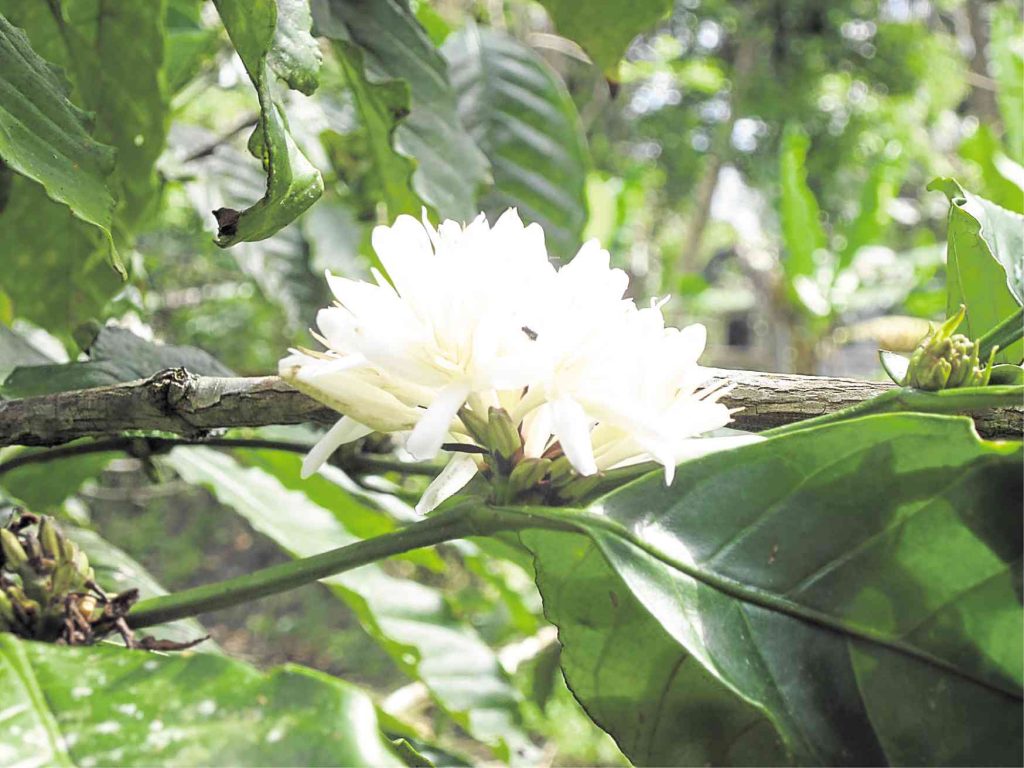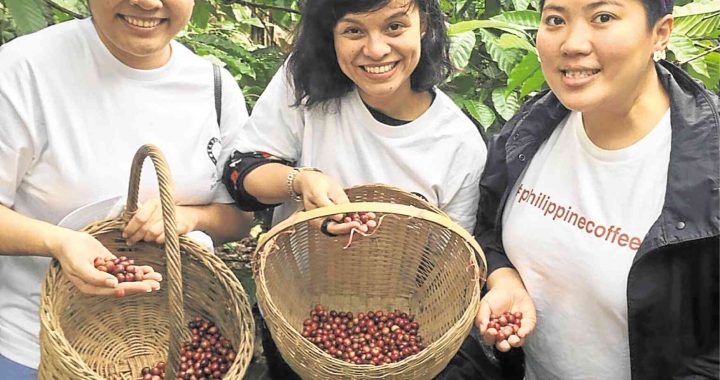by Linda B. Bolido, published by Philippine Daily Inquirer on February 10, 2019
The municipality of Amadeo in Cavite is out to reestablish itself as the undisputed coffee capital of the Philippines.
As part of this drive to restore its reputation as the country’s top coffee producer, Amadeo is reviving the annual Pahimis Festival, a celebration of the bean, from which what is arguably the world’s number one beverage comes.
This year’s Pahimis Festival will be held on Feb 22-24.
The town is also counting on the support of the Philippine Coffee Board Inc. (PCBI) in reclaiming its position.
The PCBI inaugurated recently a field office that would be the information center for coffee and a venue for seminars and training activities.
It hosted late last month its first seminar, introduction to coffee farming, by Dr. Alejandro Mojica, PCBI director and former head of the National Coffee Research Institute at Cavite State University.
Following the inauguration of the PCIB field office, a symposium was held “to rally the troops,” so to speak, in preparation for the restaging of Pahimis. Both Mayor Conrado A. Viado and Vice Mayor Leo Angelo B. Bayot, as well as members of the municipal board and other local officials, attended the event.
Coffee experts and successful producers offered tips on how local farmers can have better quality trees and increase their incomes to help bring back the glory of Cavite coffee.
Amadeo has 4,790 hectares of land planted to coffee, the largest land area devoted to coffee farming in the uplands of Cavite, making it the biggest coffee producer in the province and in the country.
The municipality of Amadeo in Cavite is out to reestablish itself as the undisputed coffee capital of the Philippines.

A dress made from jute sack is embellished with coffee beans.
As part of this drive to restore its reputation as the country’s top coffee producer, Amadeo is reviving the annual Pahimis Festival, a celebration of the bean, from which what is arguably the world’s number one beverage comes.
This year’s Pahimis Festival will be held on Feb 22-24.
The town is also counting on the support of the Philippine Coffee Board Inc. (PCBI) in reclaiming its position.
The PCBI inaugurated recently a field office that would be the information center for coffee and a venue for seminars and training activities.
It hosted late last month its first seminar, introduction to coffee farming, by Dr. Alejandro Mojica, PCBI director and former head of the National Coffee Research Institute at Cavite State University.
Following the inauguration of the PCIB field office, a symposium was held “to rally the troops,” so to speak, in preparation for the restaging of Pahimis. Both Mayor Conrado A. Viado and Vice Mayor Leo Angelo B. Bayot, as well as members of the municipal board and other local officials, attended the event.
Coffee experts and successful producers offered tips on how local farmers can have better quality trees and increase their incomes to help bring back the glory of Cavite coffee.
A dress made from jute sack is embellished with coffee beans.
Amadeo has 4,790 hectares of land planted to coffee, the largest land area devoted to coffee farming in the uplands of Cavite, making it the biggest coffee producer in the province and in the country.

The coffee flower, which looks like a sampaguita, smells sweet and should be a welcome addition to any garden.
Pacita Juan, PCBI president and co-chair, said, “This festival is just one of three outcomes of a presidential order in 2002 to uplift the coffee industry.”
Usually held during coffee harvest time, the festival is in thanksgiving for a bountiful harvest.
During Pahimis, visitors can expect to see dancers wearing jute sacks and people wearing handmade hats and garlands—all adorned with coffee beans.
The order also led to the launch of the Adopt-a-Farm program, she said.
“Through this project, idle lands can be adopted by cityfolk who wish to experience weekend farming. The only requirement is to plant the land to coffee and other companion crops like peanuts, papaya and banana. The landowners, usually in their senior years, are compensated for use of their land. The project assured the landowner an income of P10,000 per year for five years while [it made] sure more coffee trees were planted. Around 140 hectares were adopted and [are contributing] to today’s coffee production,” Juan said.
Juan herself participated in the program, but now has a coffee farm managed by Marivic Sales.
The farm has become a demonstration site for good coffee propagation and is also producing seedlings for other coffee farmers, particularly those outside Cavite.
Another outcome of the order is Cafe Amadeo.
The brand was used by a local cooperative for its coffee packs and as the name of its coffee shop and “pasalubong” center, Juan said.
She added that, 16 years later, the co-op was running sustainably and was able to give its members a substantial patronage refund and free coffee when they dined at the cafe and brought friends with them.
